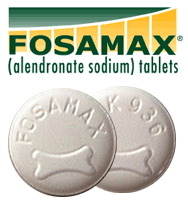Last month, I took exception to a Drug and Device Law Blog post and wrote a semi snarly retort on the topic of the confidentiality of discovery documents.
Bad move. The Drug and Device Law Blog fired back a response pretty much took my post and beat me over the head with it. Adding insult to injury, they did it with good writing and good humor. I hate it when the bad guys are good and funny. It makes them seem almost human, an idea that fits in poorly with my worldview.
I thought they got some substance just dead wrong and there was lots of room for a good counterattack. But to find the time to write a cogent, witty response to rival theirs? They spit that response out in an hour; I bet. It would take me all day to come up with something and it still would not have been as well written.
Thankfully, my brother jumped in to stand up for me. My brother? Yes, for our purposes here, my brother. Justinian Lane stepped up and wrote the response I wanted to write (link since deleted, unfortunately). Even better, actually.
So instead of beating this topic any further, I’ll comment off-topic to the core issues in this debate and address another fascinating point Justinian makes about the economic disparity between plaintiffs’ lawyers and defense lawyers:
In DDL’s first post, they made a quip about plaintiffs’ lawyers buying Maybachs, and now they’re complaining that “plenty” of plaintiffs’ lawyers have private jets. While I don’t think that the authors of DDL are green with envy over the financial success of a few plaintiffs’ lawyers, plenty of their readership is. By and large, defense lawyers go to better schools than plaintiffs’ lawyers, earn better grades, write better briefs, and I’ll say it – are better lawyers. And they know it. It therefore irritates them to no end that lawyers who they perceive as being inferior to them are more financially successful than they are.
I don’t know that defense lawyers are better trial lawyers than plaintiffs’ lawyers in mass tort cases. Plaintiffs’ lawyers get more reps because, typically, plaintiffs’ lawyers have more trial experience. A lot of great mass tort defense lawyers can go a career without trying a case. I’m not saying they can’t do it effectively when called upon but, like with most things, experience counts. Pharmaceutical companies hire great trial lawyers but if cases are remanded all over the country, they don’t have as deep of a bench as plaintiffs’ lawyers.
 Lawsuit Update Center
Lawsuit Update Center


 The first federal Kugel Mesh hernia repair lawsuit began in the U.S. District Court for the District of Rhode Island, yesterday. Plaintiff John Whitfield claims that the mesh, manufactured by Davol, Inc., was defective and broke after it was implanted, causing bowel obstruction, abdominal pain, nausea, permanent bowel injuries, and necessitating additional surgery.
The first federal Kugel Mesh hernia repair lawsuit began in the U.S. District Court for the District of Rhode Island, yesterday. Plaintiff John Whitfield claims that the mesh, manufactured by Davol, Inc., was defective and broke after it was implanted, causing bowel obstruction, abdominal pain, nausea, permanent bowel injuries, and necessitating additional surgery. If my Google Reader subscriptions are any indication, about 50% of the new blog posts across the web in the past couple of days have been about Avandia. This post is intended as a hub for basic information on Avandia and the status of the proposed Avandia recall.
If my Google Reader subscriptions are any indication, about 50% of the new blog posts across the web in the past couple of days have been about Avandia. This post is intended as a hub for basic information on Avandia and the status of the proposed Avandia recall. Two contrasting Accutane lawsuit updates in the news today:
Two contrasting Accutane lawsuit updates in the news today: As you remember, Fosamax, Merck’s osteoporosis drug, is the subject of much litigation. The question presented is whether the drug causes
As you remember, Fosamax, Merck’s osteoporosis drug, is the subject of much litigation. The question presented is whether the drug causes 